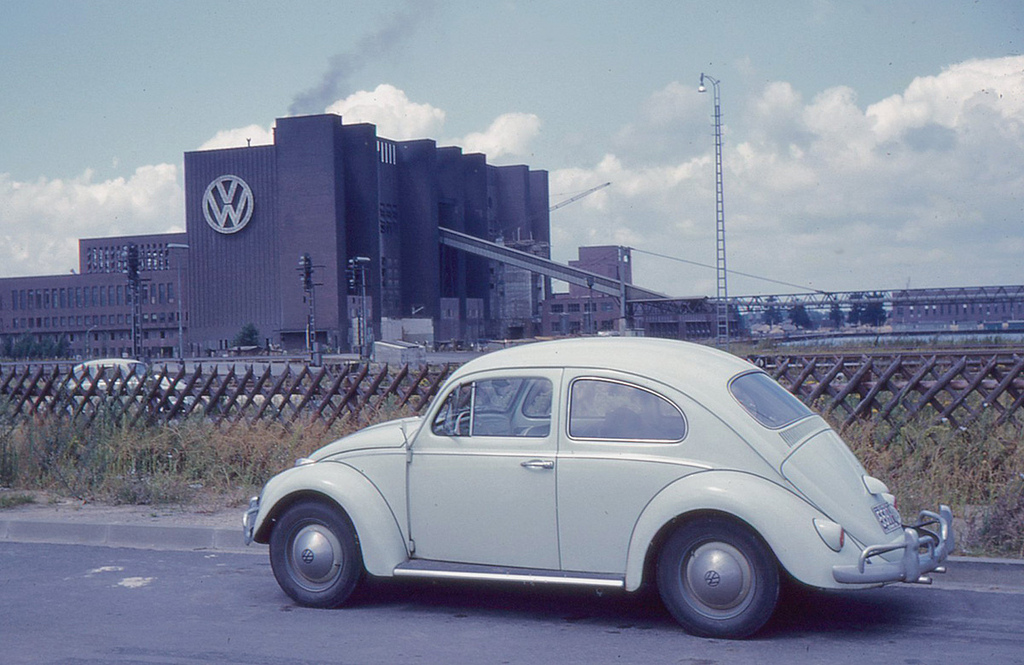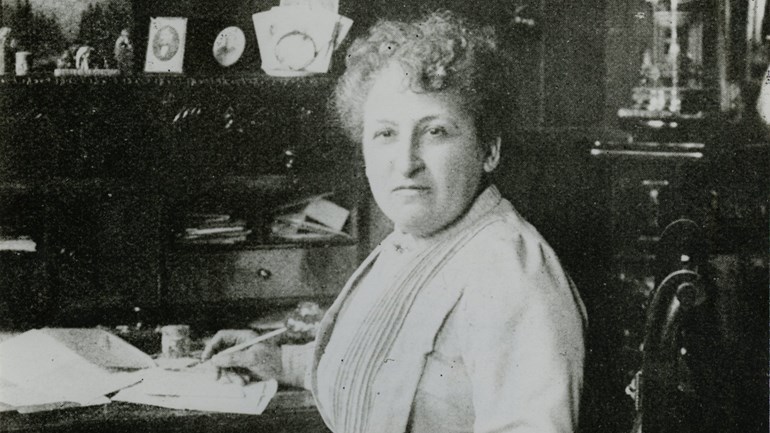The Volkswagen emissions scandal

In the past two years, I have worked on the legal consequences of the Volkswagen scandal. I have focused here and here primarily on whether the corporate social responsibility policy of Volkswagen, in which the company has outlined its commitment to environmental protection, can have legal consequences under EU private law.
Will it become a matter of European contract law?
To that end, I predicted that the EU unfair commercial practices directive has the potential to remedy the detrimental consequences for consumers. Ella Rosenberg has argued on the MEPLI blog in a similar direction.
In the meantime, much has happened in the context of the Volkswagen consumer litigation that has made me revisit this prediction. It seems that the focus on false advertisement law has materialised in the United States. This February, the U.S. Federal Trade Commission reached a far-reaching settlement in favour of consumers. The company has to fully compensate misled consumers through a combination of repair, monetary compensation and buy-backs. But, in the Member States of the EU, the experience with the use of unfair commercial practices law appears to have been mixed. The Italian competition authority fined Volkswagen for unfair commercial practices after an emissions test had been conducted by the consumer organisation Altroconsumo, but this remains the only successful action in the EU so far (according to the European Consumer Organisation BEUC). And even in Italy, the consequence was a fine for the company without the added effect that consumers have their losses compensated or receive confiscated profits (this is subject to separate proceedings).
Does this mean that the EU unfair commercial practices laws are not sufficiently well-designed to ensure a high level of consumer protection in the EU? I would say that the answer is yes and no. It is true that it is much more difficult to use unfair commercial practices law to remedy the consequences for individual consumers because the Unfair Commercial Practices Directive (Directive 2005/29/EC) left individual remedies uncovered. Further, given the lack of collective enforcement proceedings initiated on the national level, it also remains uncertain whether there will be a suitable case referred to the CJEU that allows it to clarify whether its case law on the individual consequences of collective proceedings under the Unfair Contract Terms Directive (i.e. C-472/10 Nemzeti Fogyasztóvédelmi Hatóság v. Invitel Távközlési Zrt. and C-453/10 Jana Pereničová and Vladislav Perenič v. SOS finance spol. s r.o) could apply in this constellation.
However, there is also the individual consumer litigation that is heavily pushed for and that could help consumers to have their losses compensated. The website www.my-right.de, which is maintained by the American litigation law firm Hausfeld, has been initiating consumer law disputes against the distributors of VW cars and against Volkswagen with a view to obtaining damages via individual (model) lawsuits. In one recent lawsuit before the Landgericht Braunschweig, the law firm (as the representative of the claimants) – already at an early stage of the proceedings – requested the Landgericht to refer the case to the CJEU to clarify whether consumers can claim damages for Volkswagen’s breach of EU laws on emission standards and uniform car approvals. The court did not accept this request for reasons of procedural efficiency and because it otherwise held that such a remedy would likely not be available to claimants. According to the German court, the related EU Directives and Regulations on car approvals do not create individual rights. But the claimants appealed the decision and it may very well be that the German Bundesgerichtshof will find the need to have the EU law issues clarified. Thus, rather than collective enforcement through market regulation laws, is it European contract law that could ultimately help consumers?
Let us have a closer look at the EU law argument that consumers put forward and assess its chances for success. There are two possible paths that consumers can take; one based on the rules on non-contractual liability, the other based on the rules on contract. In the case before the Landgericht Braunschweig, the claimants argue on the basis of the rules on non-contractual liability. The reason is that the consumers sued Volkswagen directly, without having bought their cars directly from the company (but from distributors). In this case, the argument is that the EU rules on car approvals not only protect public health and safety, but also protect individuals and their (economic) interests. In other words, the EU law on car approvals and emission standards is held to have horizontal direct effect. In case a company breaches these rules by cheating in the national administrative approval procedure, detrimentally affected individuals can consequently claim damages. This is obviously difficult to realise, since the Court of Justice has been very restrictive in allowing EU directives (and most of the rules on car approvals and emission standards are laid down in directives) to have horizontal direct effect. I would say that the only argument that could potentially be successful would be to argue that the national courts have to interpret the national private law rules on damages in the light of EU law in its entirety, including the environmental directives (i.e. reliance on C-106/89 Marleasing SA v La Comercial Internacional de Alimentacion SA). If the public authority has made mistakes in the approval procedure, it is also conceivable that consumers could sue the Member State in question for its incorrect application of EU law (i.e. the C-6/90 Andrea Francovich v Italy doctrine). But this is not as easy as it appears.
Hence, let me now look at the viability of using contract law to claim compensation. There are several cases in which consumers have sued Volkswagen because they bought their cars directly from the company, or where they have sued the distributors of VW cars and claimed that these are contractually responsible towards them for the behaviour of Volkswagen. The essential question then is: Can aspects such as the real-drive emissions of the car and the compliance of the car with EU laws on car approvals and emission standards be a contractual obligation that VW has breached by means of cheating the public authorities? I would argue that this is possible. Not only has Volkswagen presented to consumers in leaflets the details of the emissions and the conformity of the cars with the Euro-norm, it has also – and that allows me to link it to my initial research – publicly declared in its CSR policy towards consumers that it complies with all laws and regulations. This commitment and the related, more specific advertisement can be read into the standard of conformity because of Art. 2(2)(d) Consumer Sales Directive (which prescribes that the reasonable expectations of consumers as regards the conformity of the good can be determined in the light of public statements of the seller or the manufacturer). The question is then whether this has led to any direct damage. The decreased value of the car (and thus the possibility of selling it) due to its higher emissions and the uncertainty of whether it can continue to be used on the road is a measurable loss. This is the case particularly because in the administrative court proceedings commenced by citizens against cities for the breach of EU laws on air quality, it has been indicated that cities might be required to ban high-emission Diesel cars in order to improve air quality. But one may also argue that the losses also include an environmental loss once the consumer can show that they purchased the car specifically with regard to the low emissions. Given the need for a high level of consumer protection that the Court of Justice regularly reiterates in its EU consumer law rulings, the disappointment of such environmental expectations would need to be accompanied by a remedy that consumers can make use of.
I am currently working on a related paper that discusses these legal problems more profoundly and, of course, much depends on whether a higher court, such as the Bundesgerichtshof, will now submit questions to the Court of Justice on the relevance of EU environmental laws within consumer litigation. But I dare to make the prediction (and may need to write another blog on this in a couple of years’ time) that the CJEU would also be inclined to protect the environmentally-oriented consumer and allow him or her to receive compensation for his or her disappointed expectations.
This blog was written by Anna Beckers for MEPLI and Law Blogs Maastricht, Image by Flickr, Roger W.
-
A. BeckersMore articles from A. Beckers
Anna Beckers is a Professor of Private Law and Social Theory at the Faculty of Law at Maastricht University.
Other blogs:
Also read
-
Recent days have seen the meteoric rise and fall of the European Super League (ESL). This new league would have consisted of 15 founding clubs and 5 other clubs; the former consisting of ‘big clubs’ which could not be relegated and the latter in clubs who performed well over the past years on a...
-
Back in 2017, the European Court of Justice ruled in Asociación Profesional Elite Taxi v. Uber Systems Spain, SL (Case C-434/15) that Uber offers common transportation services and thus, ought to be regulated as such. Various European national courts subsequently made similar rulings against Uber...
-
In the last few months all colleagues were able to participate in a poll to name our tutorial rooms. This leads to a choice doing justice to diversity in nationality, field, gender and type of name.


